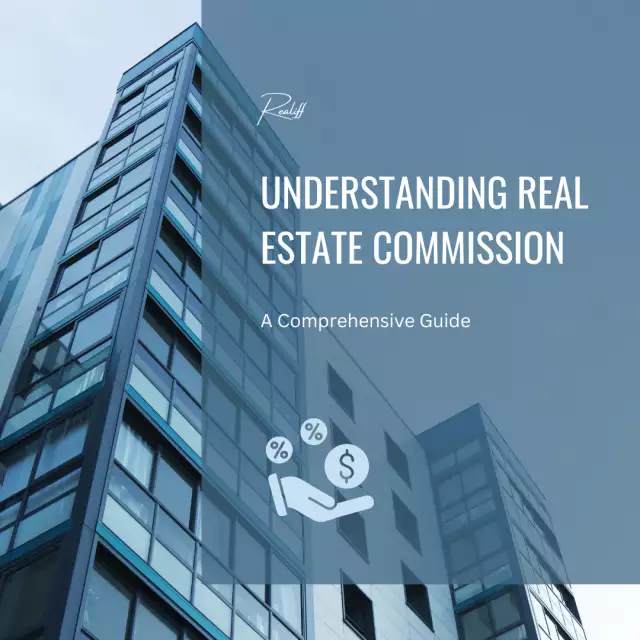Real Estate Investment Strategies for Retirement Planning: A Comprehensive Guide
Real Estate Investment Strategies for Retirement Planning: A Comprehensive Guide
Planning for retirement requires careful consideration of various investment options to secure a financially stable future. Real estate investment has long been recognized as a reliable and profitable strategy for retirement planning. In this comprehensive blog post, we will explore different real estate investment strategies that can help you build a solid retirement portfolio.
Rental Properties:Investing in rental propertiesis a popular approach for generating passive income during retirement. By purchasing residential or commercial properties, you can collect rental payments that provide a consistent cash flow. Consider the following factors when investing in rental properties: a. Location: Choose areas with strong rental demand, amenities, and potential for long-term growth. b. Property Management: Decide whether you'll manage the property yourself or hire a professional property management company. c. Financing: Explore mortgage options and analyze the potential return on investment (ROI).
Real Estate Investment Trusts (REITs):REITs are investment vehicles that allow individuals to invest in real estate without directly owning properties. They provide an opportunity to diversify your portfolio and access income-producing real estate assets. Consider the following aspects of REITs: a. Types of REITs: Choose between equity REITs (which own and manage properties) or mortgage REITs (which invest in mortgages and mortgage-backed securities). b. Dividends: Research the historical performance and dividend payouts of REITs before investing. c. Risk Assessment: Analyze the specific REIT's portfolio, management team, and market trends to evaluate potential risks.
What is the aim of refinancing?
Real Estate Crowdfunding:Crowdfunding platforms have revolutionized real estate investing by allowing multiple investors to pool their resources to invest in larger projects. Key considerations for real estate crowdfunding include a. Platforms: Research and select a reputable crowdfunding platform that aligns with your investment goals and risk tolerance. b. Due Diligence: Evaluate the project's location, financial projections, development team, and the platform's track record. c. Investment Terms: Understand the terms of the investment, including the expected returns, holding period, and potential exit strategies.
House Hacking:House hacking involves purchasing a multi-unit property and living in one unit while renting out the others. This strategy allows you to offset your living expenses and generate rental income simultaneously. Consider the following factors when house hacking: a. Property Type: Choose a property with multiple units, such as a duplex or triplex. b. Financing: Explore loan programs designed specifically for owner-occupied multi-unit properties. c. Rental Management: Ensure you can effectively manage the rental units while maintaining your own living space.
Buying A House With Cash: Advantages and Disadvantages
Real Estate Development:Real estate development involves purchasing land or existing properties and improving or constructing new buildings for resale or rental purposes. While this strategy requires significant capital and expertise, it can yield substantial profits over the long term. Consider the following aspects of real estate development: a. Market Analysis: Conduct thorough research on the local market and demand for specific property types. b. Feasibility Study: Assess the financial viability of the project, including construction costs, potential profits, and market risks. c. Project Management: Engage professionals, such as architects, contractors, and project managers, to oversee the development process.
Conclusion
Real estate investment strategiesoffer attractive options for retirement planning, providing potential income streams and long-term growth. Whether through rental properties, REITs, crowdfunding, house hacking, or real estate development, diversifying your portfolio with real estate can contribute to a secure and comfortable retirement. Remember to conduct thorough research, evaluate risks, and consult with financial advisors or real estate professionals to make informed investment decisions that align with your retirement goals.
Here are some potential FAQs regarding real estate investment strategies for retirement planning:
1. Is investing in real estate a good strategy for retirement planning?
Real estate investment can be a good strategy for retirement planning, as it can provide a steady stream of rental income and long-term appreciation in value. However, it's important to carefully evaluate the risks and consider factors such as location, market conditions, and ongoing expenses.
2. What types of real estate investments are suitable for retirement planning?
Depending on your goals and risk tolerance, you may consider investing in rental properties, real estate investment trusts (REITs), or real estate crowdfunding platforms. Each option has different advantages and disadvantages that should be carefully weighed before making any investment decisions.
3. How does investing in real estate compare to traditional investment options like stocks and bonds?
Real estate investments can offer some unique benefits, such as providing a hedge against inflation, but they can also be more complex and require more ongoing maintenance and management than traditional investments. It's important to evaluate how real estate investments fit into your overall retirement portfolio.
4. What are some key factors to consider when evaluating a potential real estate investment opportunity?
Some important factors to consider when evaluating a real estate investment opportunity include the property's location and condition, the current cash flow and potential for future income, the costs of purchase and ongoing maintenance, and the potential for long-term appreciation in value.
5. How can I reduce the risks associated with real estate investments for retirement planning?
There are a number of strategies investors can use to mitigate the risks associated with real estate investments, such as diversifying their portfolio, conducting thorough due diligence before investing, and working with experienced real estate professionals. It's important to carefully consider these risks and develop a solid, long-term investment plan.









